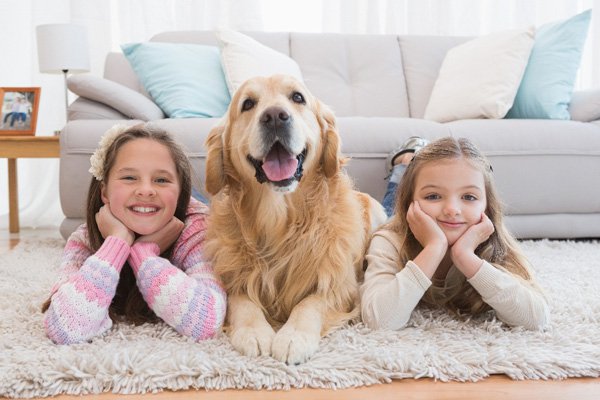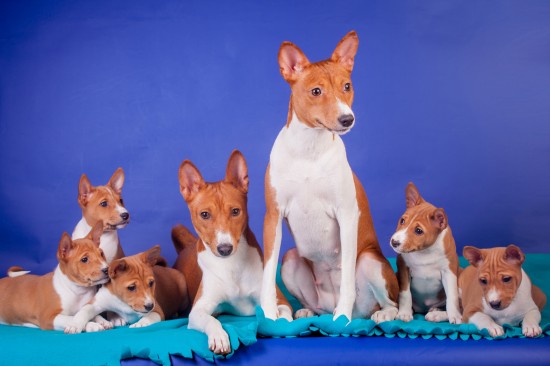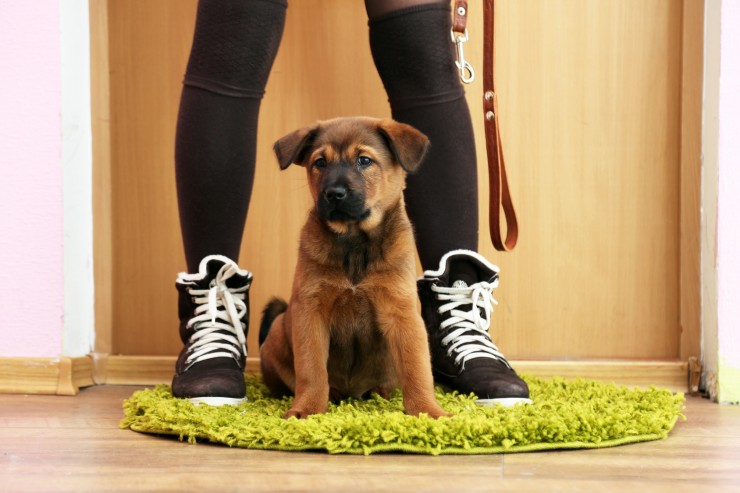
Scooter heard me calling him, but the messages contained in the scent called to him far more strongly. He pretended to be totally oblivious of my calls- until he was finished, and now it was convenient to come. Frustration coursed through me. Why won’t he listen to me??? He needed more training, I thought. I had enough presence of mind to be kind to him when he came, praise him for coming, but I’m sure he sensed some of my frustration, and immediately bounded off again.
As I walked along the beach, Scooter cavorted through the driftwood, coming back to me to make sure I was still there and following his lead, like a good pack dog. I had the thought that he was treating me like I was his companion- instead of the other way around. This had to change!!
What did I want? I wanted him to be my companion, treat me with respect, be attentive to me. Extending this desire, I wanted the people in my life to treat me with respect, and honor my requests (for paying their bills). The trick I faced was how to convey that energetically. Scooter was making it very obvious to me that being respected and honored was not the dominant energy I was putting out. I really had no idea how to change this energy, so I started saying over and over, as I walked along the beach, that I respected and valued myself. On our way back, I noticed that Scooter was being more attentive, walking along side me, looking up at me, and coming back quickly after inspecting treasures lurking in the sand. I concluded something in my energy had shifted- or he was tired. Heartened, I was amazed how quickly he responded to energy changes.
Who is training who, really?
When I was a child and before the public debut of the horse and dog whisperers, I watched as our horses were trained in the old philosophy of submission by dominance and intimidation. I cringed as I watch the animals frightened and fighting to get away. When everyone was gone, I sneaked over to the horse and gave her some grass. She was so scared that she was almost dangerous to be around. Eventually, she calmed enough to nervously grab the offering. I knew there was a better way, but who was I to challenge the experts?
After many years barren of horse friends, I got a Peruvian Paso horse that showed me very clearly that the old ways of intimidation and dominance would not work. She taught me to respect her and work with her. We became really good friends, and learned to trust and respect each other. Soon, I could ride her anywhere- to the beach, along the highway, into town and especially racing through the woods- bareback with only a halter. Forget the formality of a saddle and bridle. She was willing, and trusted I would not ask something from her that she could not do. She stopped doing the little wily tricks of other horses, like stepping to the side when getting on, and looking for opportunities to spook. She loved people, and understood when to be very gentle. She was very polite when I gave a ride to a lady with MS and a very shy young boy.
What is training, really? The establishment of certain behavior responses as a result of specific stimuli? The school of dominance, control and will power is still very dominant, but a growing school of animal training is with positive reinforcement, and understanding animal psychology in order to reinforce positive behaviors. The trick also seems to catch the undesirable behavior before it can escalate into action, such as the dog running off in pursuit of some interesting person or item. As a sight hound, when Scooter sees something of interest, he is off in full pursuit almost instantly. If I do not call him back, just when he sees his object of interest, he is gone. He comes back, after he has satisfied his curiosity.
This same practice can be applied to people who want to change their thoughts and reactions. The thought/ action must be re-directed before it can get started. Issue a new command. Create a new thought, before the old pattern can run it’s course. Over time, the new habit can be established, so that the stimulus either has no effect, or causes a more desirable response. Creating new behavioral patterns can get tricky, especially when dealing with unconscious old habits, which most of us have. Success improves over time and with practice.
Training an animal- or myself- also has another benefit. Before I can direct Scooter to do anything, I need to be clear about what I want- not a nebulous concept like I want his respect. I have to be clear about what it means, and how he can show it. As it is with creating anything in life- the greater the clarity, the easier Source can bring it and the more quickly your pet can reflect it back to you. It is like going in to a store with shelves and shelves of Respect, in all sorts of colors, brands, quality, and packaging. A choice must be made or you walk out of the store overwhelmed and without Respect.
Scooter is training me to be a great leader! Not only of my animal friend, but of my own life.
Another gift from the pet world is positive reinforcement training- rewarding and supporting behaviors that are desirable and not giving attention to the undesirable behaviors. This simple principle can be applied to our daily lives. With conscious awareness, we can treat ourselves just like the dog or horse we are training- re-directing thoughts and the attendant feelings and actions to something more in line with what is desired. This is a useful for gaining Mastery over you life, by redirecting your perceptions surrounding stressful situations, and creating possibilities for healing and abundance. When you set out to train your pet, is it just as likely that your pet is offering you the possibility to train yourself into being a better leader- both of your animal and in your life?
What are your beliefs surrounding training and your pet?
This is another of a series of articles about Pets: Agents to Self-Mastery.
 How to take into account creating the best quality Horse fence?
How to take into account creating the best quality Horse f
How to take into account creating the best quality Horse fence?
How to take into account creating the best quality Horse f
 Mastitis In Dogs - Diagnosing, Treatment And Prevention
Mastitis In Dogs
Mastitis In Dogs - Diagnosing, Treatment And Prevention
Mastitis In Dogs
 The Different Puppy Personalities In Each Litter
The Different Pup
The Different Puppy Personalities In Each Litter
The Different Pup
 Signs Puppy Needs To Go To The Bathroom
Signs Puppy Needs
Signs Puppy Needs To Go To The Bathroom
Signs Puppy Needs
 Boring Ordinary Dog Tags – Are There Better-looking Personalized Dog Tags Out There?
Boring Ordinary Dog Tags – Are There Better-looking Personalized Dog Tags Out There?
Copyright © 2005-2016 Pet Information All Rights Reserved
Contact us: www162date@outlook.com